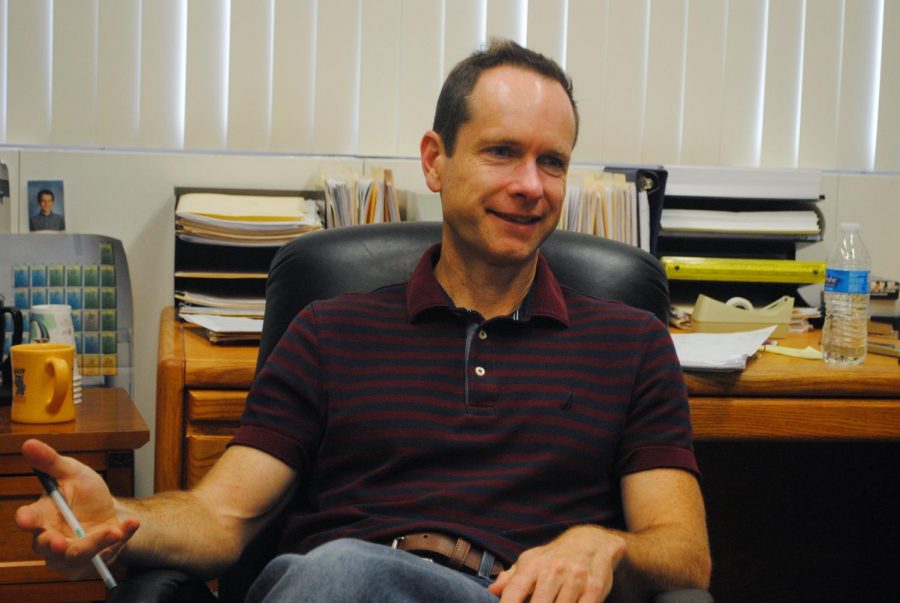Technology company started by WSU professors receives grant
New microscope costs less, shows promise for university researchers
ALYSSA STANFIELD | THE DAILY EVERGREEN
Matt McCluskey, chief technology officer of Klar Scientific, discusses a research grant recently awarded to him and his team for the further development of their microscope Wednesday in Webster.
September 27, 2018
A startup company launched by a WSU professor has received a $740,000 grant from the National Science Foundation to continue research and eventually commercialize a new, less expensive and easy-to-use microscope.
Matthew McCluskey, a professor in the department of physics and astronomy, filed for a provisional patent five years ago for his design.
His company, Klar Scientific, designed and manufactures a spectroscopic confocal optical profile (COP) microscope, which collects more information about materials in less time and at a lower cost than what is currently on the market, McCluskey said.
He and co-founder Rick Lytel, an adjunct professor of physics, launched Klar Scientific after having difficulties gathering data with a standard confocal microscope. Certain types of confocal microscopes use fluorescence to find impurities or defects in a sample.
“Fluorescence occurs when you shine a laser on a sample and some molecules emit a different color of light,” McCluskey said. “It is similar to if you attended a blacklight party. The UV from the blacklight may make molecules in paint glow green or red.”
By comparison, McCluskey’s design is better at detecting small defects and uneven textures.
An autofocusing feature paired with a charge-coupled device (CCD) camera will allow researchers to see an entire sample in extreme focus even if parts are bumpy, he said.
“Imagine if there was a piece of dust on a computer chip,” McCluskey said. “Our microscope could find that.”
Klar Scientific is currently in the development stage with hopes to move into the manufacturing stage within the next year or two.
Before the COP microscope will be market-ready, McCluskey and his team are working on the autofocusing capability and portability, and scaling up the size of the company.
The first prototype of the microscope would fit on a table; however, it was impossible to transport, McCluskey said. The current prototype has a base of 1 square foot.
He said his microscope will cost approximately as much as a car. Initial customers will be university researchers, government labs and then industry.
Yi Gu, associate professor of physics, is already using one of the early COP prototypes in his work, McCluskey said.
Klar Scientific is currently made up of four members with plans to include a fifth soon. McCluskey and Lytel brought on Slade Jokela, the principal scientist, and Violet Poole, a hardware engineer. The new position would be for a software engineer.
McCluskey said he went through many names for the company and compared it to trying to name an unborn baby.
“Klar is German and means seeing clearly,” McCluskey said.















